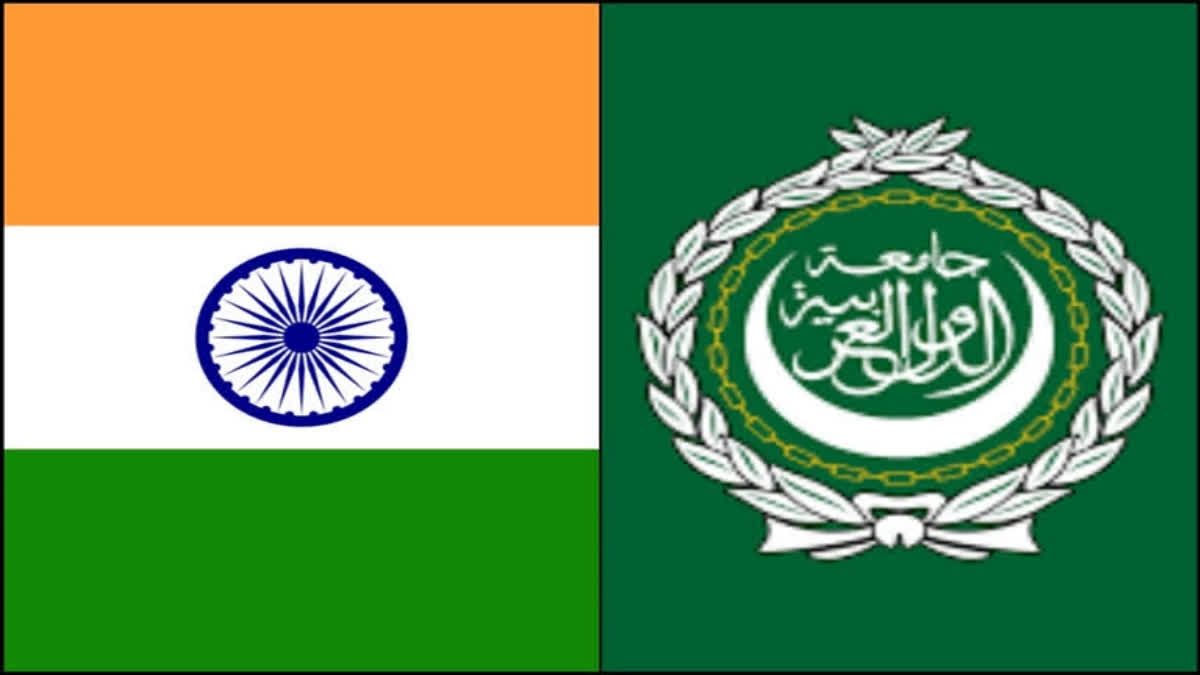New Delhi: With the inclusion of three Arab nations as well as Iran in BRICS, India is set to play a bigger role in the multilateral bloc. During the 15th BRICS (Brazil, Russia, India, China, South Africa) Summit held in Johannesburg this week, six new countries were added to the bloc – the Arab nations of Egypt, Saudi Arabia and the United Arab Emirates (UAE), Iran, Ethiopia, and Argentina.
“With the addition of Egypt, Saudi Arabia, and the UAE to the BRICS bloc, India's role has expanded significantly,” Mohammed Soliman, director at the Middle East Institute in Washington, told ETV Bharat in an interview. “Delhi is a strategic partner to Cairo, Abu Dhabi, and Riyadh, driven by economic, political, and diplomatic factors, thereby counterbalancing China's influence.”
It may be mentioned that during the visit of Prime Minister Narendra Modi to Saudi Arabia in 2019, the India-Saudi Arabia Strategic Council was instituted. It has two main pillars: Political, Security, Social and Cultural Committee; and Committee on Economy and Investments India is the fourth country with which Saudi Arabia has formed such a strategic partnership, after the UK, France and China. Saudi Arabia is also India’s second-largest supplier of crude oil. India imports around 18 per cent of its crude oil requirement and around 22 per cent of its liquified petroleum gas (LPG) requirement from Saudi Arabia. The Gulf kingdom is India’s fourth largest trading partner after the US, China and the UAE. In FY 2021-22, bilateral trade was valued at $42.8 billion.
The relationship between India and the UAE has been elevated to that of a Comprehensive Strategic Partnership. India and the UAE are currently part of several plurilateral platforms such as I2U2.
(India-Israel-UAE-USA) and UFI (UAE-France-India) Trilateral. The UAE is India’s third largest trading partner after China and the US. The UAE is also among the largest crude oil suppliers for India. The UAE’s investment in India is estimated to be around $20-21 billion of which $15.18 billion is in the form of foreign direct investment (FDI) while the remaining is portfolio investment. The UAE is the seventh biggest investor in India in terms of FDI.
In June this year, Modi visited Egypt while on his way back from the US. This was the first prime ministerial visit from India to Egypt since 1997. During the visit, India and Egypt signed the Strategic Partnership Agreement. Egypt has traditionally been one of India’s most important trading partners in the African continent. The India-Egypt Bilateral Trade Agreement has been in operation since March 1978 and is based on the Most Favoured Nation clause and the bilateral trade has increased more than five times in the last 10 years. Around 50 Indian companies have invested in various sectors in Egypt with a combined investment exceeding $3.2 billion.
“India's commitment to multilateralism and energy security resonates with Arab nations, further solidifying Delhi's importance as a key pillar in the changing dynamics within the BRICS,” Soliman said.
He said that bringing Saudi Arabia, Iran, and the UAE into the BRICS alongside Russia and Brazil, creates a synergy between major energy producers and key consumers, primarily India and China.
“As the bulk of global energy trade relies on the dollar, this expansion could provide the bloc with added leverage to attempt to redirect a more substantial share of trade towards alternative currencies,” Soliman said. “Nevertheless, despite the ongoing discussions surrounding de-dollarisation, it remains difficult to foresee a world in the immediate future where the US dollar relinquishes its position as the global reserve currency, mainly due to structural factors.”
He also warned that China’s growing interest in the Middle East, evidenced by its support for including Egypt, Saudi Arabia, Iran, and the UAE as new BRICS members and its push for a Saudi Arabia-Iran deal are calculated moves to reshape the region’s dynamics. “This expansion aligns with China's global strategy, aiming to secure energy resources, bolster economic influence, and challenge the US-led order,” he said.
According to Soliman, including Middle Eastern powers in the BRICS bloc reflects the emerging multipolar order.
“As regional powers aim to diversify alliances and voice their views on the global landscape, it showcases their growing influence and strategic posture. However, unlike Iran, Arab countries must navigate alliances carefully to maximize benefits without isolating traditional partners such as the US and other Western powers,” he said
Soliman explained that today West Asia should be more than merely seen as an energy-producing region. “The Gulf states are gaining global prominence owing to the ongoing social and cultural changes within their societies, their efforts in economic and digital transformations, and their strategic deployment of capital investments across the globe,” he elaborated. “Despite its financial challenges, Egypt retains its position as the demographic centre of the region, alongside its geographic centrality and dual Afro-Arab identity. This renders Egypt, Saudi Arabia, and the UAE valuable assets for the BRICS.”



